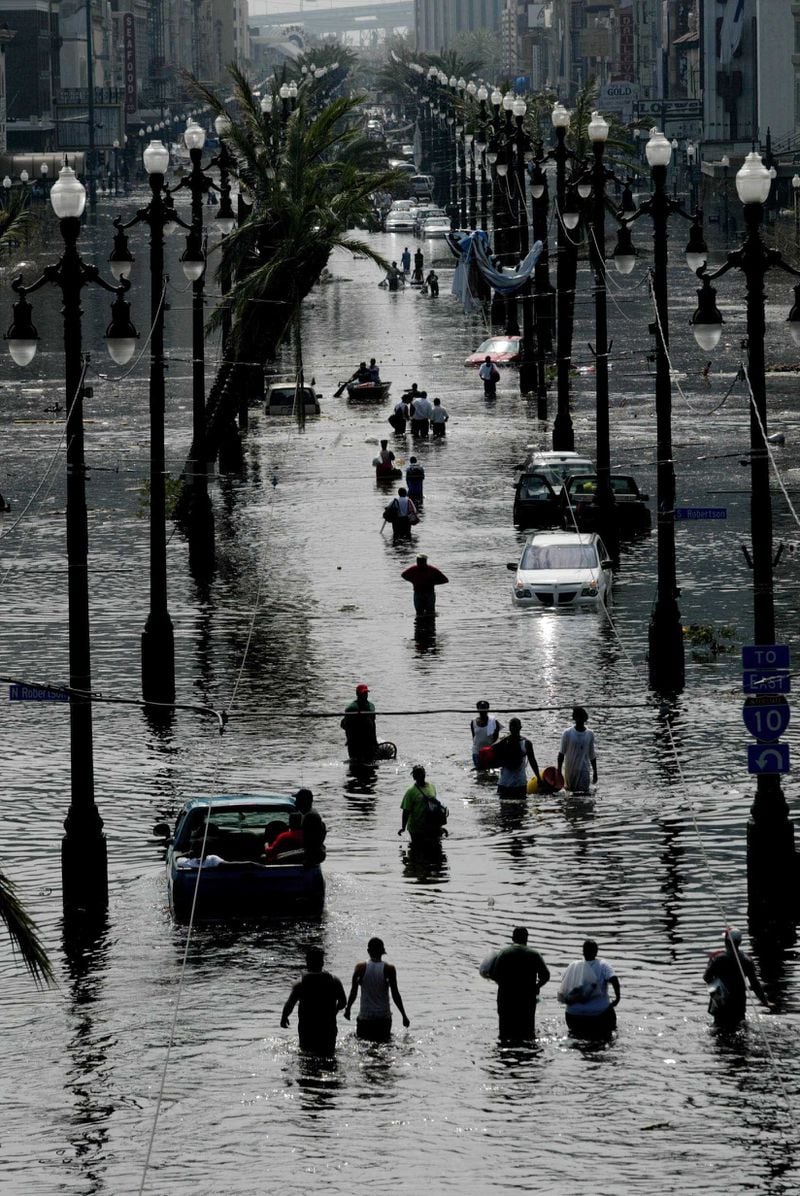J. Celeste Lay is an associate professor of political science at Tulane University. She studies American politics and public policy. Her recent work focuses on the politics of education policy. She can be reached at jlay@tulane.edu
By J. Celeste Lay
As Georgians consider adopting a state-run district for “failing” schools, a variety of people have tried to convince voters that they should make this move toward a New Orleans market-based education model. According to those who were actively involved in the post-Katrina takeover of public schools in New Orleans, all is now well, in fact better than ever, in New Orleans schools.
Credit: Maureen Downey
Credit: Maureen Downey
Last week, the former superintendent of the Recovery School District of Louisiana, Paul Vallas, touted its unmitigated success in T he Atlanta Journal Constitution Get Schooled blog.
He wrote, “The RSD is better serving the education needs of underprivileged, minority children there than perhaps at any time in history. Parents now have unprecedented choices for their children’s education. Any child in New Orleans can apply to any RSD school and the schools must accept all students until all the seats are filled.”
New Orleans’s charter school experiment is built on the notion that the invisible hand of the free market, made manifest in “unprecedented” parental choice, will improve the quality of public schools through competition. Once the state takes over, public funds are then free to flow to private charter management organizations to run the schools. Parents will choose only the best schools for their children, forcing low-performing schools to get better or close. In New Orleans, however, the invisible hand appears to be attached to the arm of manipulation and deception.
In the same week as Vallas’ editorial, Tulane’s Education Research Alliance (of which I am not affiliated) published a study that undermines his claims about parental choice and the accessibility of charter schools in New Orleans. This study shows that only one-third of randomly selected principals responded to competition by making substantive changes to academics or operations. Instead, these principals admitted they focused on creating niche programs (57%), “glossifying” their schools through marketing campaigns (83%) and screening out undesirable students (33%). Several schools that were supposed to “accept all students” admitted to selectively admitting students. School leaders matter-of-factly stated they use multiple methods to target certain types of families.
This report is far from the only evidence of how and for whom the market works. The city and state boards of education recently settled with Southern Poverty Law Center in a suit alleging children with disabilities were underserved and illegally disciplined in charter schools.
Charters regularly ignored students’ IEPs and pushed disabled students into schools that could not serve their needs. Several charter schools have been linked to ethics scandals, including nepotism and embezzlement. Similarly, many charters have been involved in cheating scandals related to standardized test scores, something about which those in Atlanta are very familiar.
Like those working in the city’s public schools, advocates of a state-run school district that consists primarily of charter schools undoubtedly believe this will improve schools and help kids. However, voters should not ignore that many people profit handsomely in a system of privately-managed schools.
Like other businesses, schools operating within market models must also turn a profit. The principal at my nearby charter school makes over $300,000 per year, a 246 percent increase from her salary before the school was chartered. For-profit management companies charge schools 15-20 percent of school revenue. Taxpayer dollars go into hefty administrator salaries and corporate profits instead of reducing class sizes, upgrading facilities, or recruiting and maintaining high-quality teachers.
One could get around all of these problems, perhaps, if the students’ outcomes were significantly improved. However, the RSD-NO continues to post scores on state exams that are well below the state average.
The average ACT score of the RSD-NO’s class of 2014 was 15.7 – far lower than the minimum entrance requirements at LSU and other public universities. Reform advocates tout growth in these scores, but such growth is neither entirely linear nor significant.
Leslie Jacobs, a chief architect of the New Orleans reforms, responded to the Tulane report by calling for greater regulation to offset the “human nature of some to find ways to game the system.” Government regulation is, of course, antithetical to a free market in education and such “red tape” is often the basis on which reforms are built. Such calls are also disingenuous. The Louisiana Supreme Court recently ruled that the New Orleans Inspector General does not have jurisdiction over the Orleans Parish School Board despite the fact that its funding comes from city taxpayers.
Education reform in New Orleans ought to be a model for others. The city’s experience, however, provides more of a model of what not to do than anything else.
About the Author







